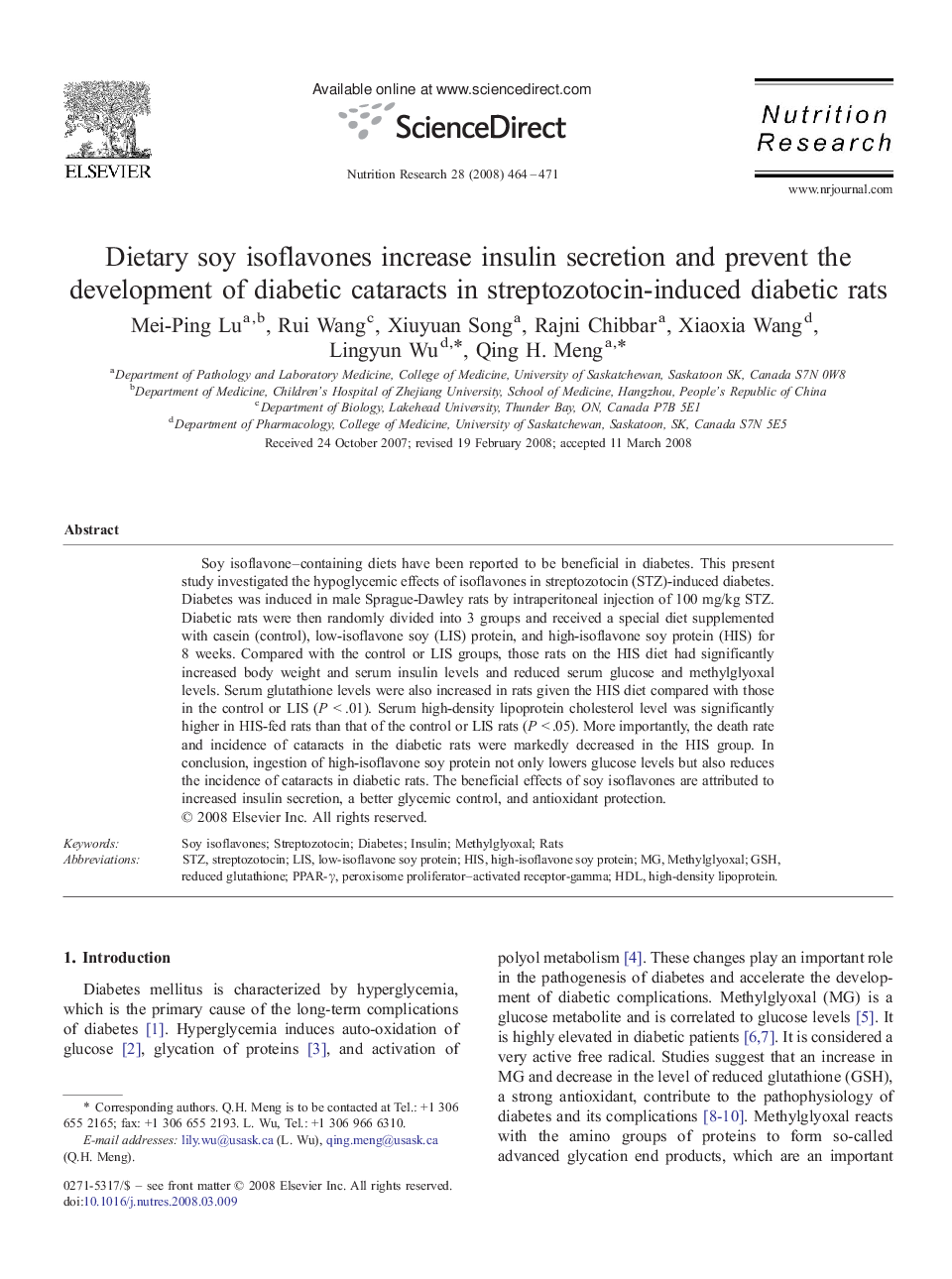| Article ID | Journal | Published Year | Pages | File Type |
|---|---|---|---|---|
| 2809695 | Nutrition Research | 2008 | 8 Pages |
Soy isoflavone–containing diets have been reported to be beneficial in diabetes. This present study investigated the hypoglycemic effects of isoflavones in streptozotocin (STZ)-induced diabetes. Diabetes was induced in male Sprague-Dawley rats by intraperitoneal injection of 100 mg/kg STZ. Diabetic rats were then randomly divided into 3 groups and received a special diet supplemented with casein (control), low-isoflavone soy (LIS) protein, and high-isoflavone soy protein (HIS) for 8 weeks. Compared with the control or LIS groups, those rats on the HIS diet had significantly increased body weight and serum insulin levels and reduced serum glucose and methylglyoxal levels. Serum glutathione levels were also increased in rats given the HIS diet compared with those in the control or LIS (P < .01). Serum high-density lipoprotein cholesterol level was significantly higher in HIS-fed rats than that of the control or LIS rats (P < .05). More importantly, the death rate and incidence of cataracts in the diabetic rats were markedly decreased in the HIS group. In conclusion, ingestion of high-isoflavone soy protein not only lowers glucose levels but also reduces the incidence of cataracts in diabetic rats. The beneficial effects of soy isoflavones are attributed to increased insulin secretion, a better glycemic control, and antioxidant protection.
